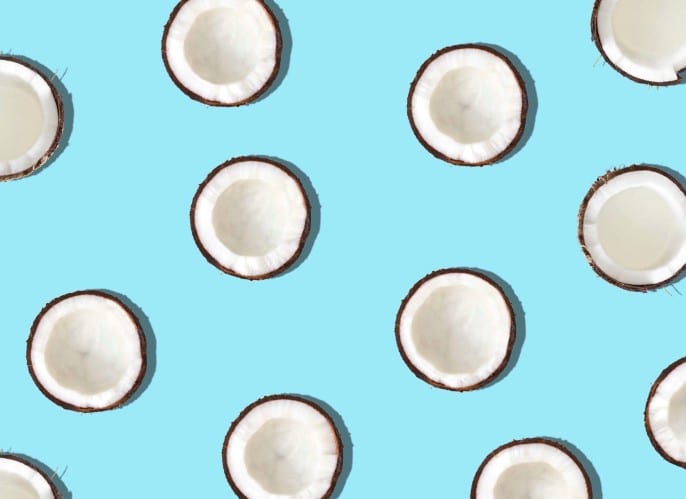Read Time: 4:30 Mins.
CBD tinctures are quickly gaining popularity with us mature adults. They’re easy to use and store, and are very discreet. Plus, if they are products with no THC (or less than .03%), you can easily find them online without going to a cannabis dispensary. We have several reputable CBD tincture products on our site, so you can visit our CBD tinctures page to learn more about them. When you do, you may notice that most of the tinctures contain MCT oil; but what is MCT oil and is it OK in CBD tinctures? If you’re an adult considering using CBD oil for health and wellness benefits, we thought it might be helpful to provide some information about MCT, and why so many companies use it.
What is MCT?
I bet that most of us do not remember much from our high school chemistry class. Heck, I barely remember high school at all. Putting on our science hats on for a moment, MCT stands for “Medium Chain Triglycerides” or “Medium Chain Fatty Acids.” In the natural world, they come from coconut oil, palm oil, and some dairy products.
For tinctures, our bodies process cannabidiol, aka CBD, much better when it’s combined with a fat-based “carrier oil.” CBD is fat soluble, meaning it breaks down better in oil rather than water. As a result, the CBD is delivered more efficiently in our bodies. For CBD and other tinctures, MCT is becoming quite popular as the main carrier oil to mix with the CBD oil. Medium chain triglycerides have fewer carbohydrates and calories than “long chain triglycerides” (LCT) found in olive oil, nuts, and avocados.
While the medical community considers LCTs as healthy oils, our bodies process MCT oils differently than LCT oils because MCTs travel through our digestive systems and liver more efficiently. Again, this means the body absorbs more CBD molecules because they don’t get stopped in the liver. Getting back to my fondness for gambling, I bet that many readers are thinking “So why not use hemp seed oil as the carrier oil?” It comes down to carbs, calories, and again, the way our bodies process hemp oil. MCT oil also has fewer calories than hemp seed oil which makes MCT a more efficient delivery system. MCT allows for a better ratio of carrier oil to CBD oil, so the tincture can have higher CBD content. This same premise holds true for other LCT oils like olive oil or pure palm oil. They are not bad for you, MCT is simply better for distributing the CBD throughout our bodies.
MCT vs Pure Coconut Oil
The MCT extracted from the coconut oil is in the form of Capric acid and Caprylic acid. That is not a typo. The difference is the number of carbon atoms in each acid. Pure coconut oil also contains “Lauric acid” that many biochemists consider an LCT. Again, as an LCT, our bodies process it differently. There’s nothing wrong with using coconut oil as a carrier oil, and in fact, these tinctures may be cheaper because there is less processing involved. But according to scientists smarter than me, extracting the MCT from the coconut oil or palm oil makes for a more efficient carrier oil because our bodies process it differently.
Straight, No Chaser
MCT on its own is clear, tasteless, and it’s odorless. This means you can put it in your morning coffee, tea, or straight from the eye dropper. Using it in smoothies or salad dressing is also popular. When used in a CBD or THC tincture, the taste may vary with different products. I personally use a CBD/MCT oil tincture a couple of hours prior to bedtime for better sleep. It has no taste and I put it under my tongue letting it soak into my mouth for about 90 seconds before swallowing.
What are the Health Benefits of MCT Oil?
MCT by itself may help our brains for improved memory and brain function. According to the Alzheimer’s Drug Discovery Foundation, MCT may also combat the effects of Alzheimer’s Disease. Without a doubt, additional research is needed about how MCT may improve brain function, and we will pay close attention to these types of studies.
It may also be helpful with weight loss. A 2009 study found that MCT helped reduce women’s body mass index, and it may also help maintain better cholesterol and sugar levels. MCT oil may also help with our digestive system by inducing good bacteria into our stomach lining.
Keto Friendly?
A Ketogenic diet consists of a low-carb, high-fat meal plan. According to Harvard Health News, with a Keto diet, our bodies get fuel from fat “ketones,” not carbohydrates found in other foods. MCT helps burn calories, so this may help someone trying to lose weight on a Keto diet. Going a step further, because MCT oil is a fuel source on its own, the body does not need to store the fat you’re eating at every meal on a Keto diet. The Epilepsy Foundation believes a Keto diet in conjunction with MCT oil may be helpful in providing relief for older children suffering from epileptic seizures. This is mainly because ketones serve as a fuel for the brain as well as the body.
The Health Benefits of MCT and CBD
When you combine MCT with the potential health benefits of CBD, it’s easy to understand why quality-conscious companies prefer it in their products. CBD acts as an anti-inflammatory, anti-anxiety, and relaxation agent without the euphoric feeling caused by its fellow cannabinoid companion, THC. Many people also find it helpful for both chronic and temporary pain relief, and insomnia.
A Low Smoke Point
MCT oil has a low smoke point. No, I am not referring to smoking or vaping MCT oil on its own. A low smoke point means you should never cook with it because it can ignite at low temperatures. Stick with your standard olive, canola, or vegetable oils for cooking. Besides, cooking with MCT oil would be really expensive.
Better Health and Wellness
Together, CBD and MCT make a powerful combination for better overall health and wellness. Each has its own positive attributes, and combining them makes for excellent products. If you’re currently taking other medications, always check with your doctor before starting an MCT/CBD regimen.
Are you currently using a CBD/MCT tincture? How do you use it? In coffee? Straight out of the dropper? We’d love to hear your story.
Philip Rebentish is a writer and the Content Editor for Three Wells.




